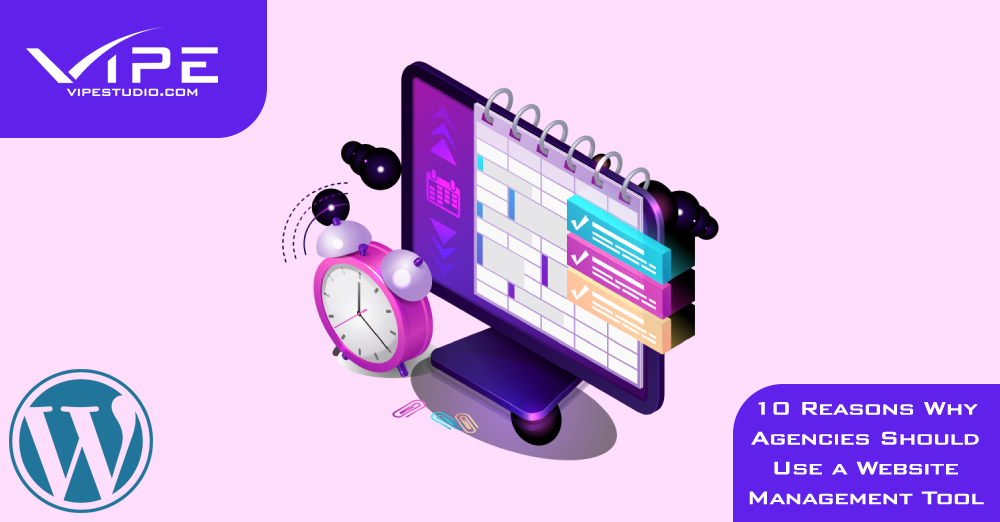12.08.2022
WordPress Development
10 Reasons Why WordPress Agencies Should Use a Website Management Tool
READING TIME: MIN
Table of Content
Running an agency is hard work.
You have to deal with clients round the clock, focus on lead generation and client acquisition, and at the same time manage a gazillion activities that your current clients have ordered.
Managing all these activities can be a nightmare for an agency with only a few hands on deck.
Let’s imagine that you are running a WordPress development agency. You have around 50 clients and a team of 5 people working for you. Your developers take care of the website development work, but maintaining your clients’ sites has become an enormous hassle.
Your team has to manually manage each website to update the core files, keep the sites secure, and keep them fast and stable on their respective hosting.
These operations might take a lot of your development team’s time.
Nowadays, innovative agencies manage these tasks through bootstrapping.
They outsource work to counter resource crunch. They use better management tools to stay ahead of time and manage all activities simultaneously with better processes.
What if there was a solution that could help you better manage site maintenance issues while continuing to provide top-notch development and maintenance services to your clients? That’s where website management tools come in handy.
If you are still wondering what a website management tool is, then read on.
What is a Website Management Tool?
A website management tool does what the name suggests – to ‘manage’ the site. It is a tool that manages site operations, customizations, and even design changes all through a single software/tool.
There are many types of website management tools on the market. One of the most preferred options is MainWP – a tool that allows agencies to manage an unlimited number of websites with a single dashboard.
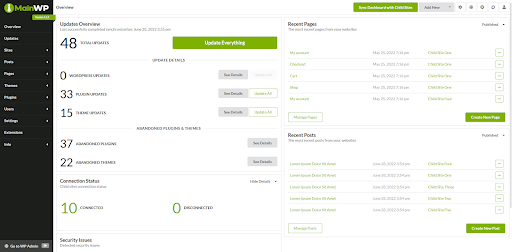
Reasons to Use a Website Management Tool
As we have already discussed, a website management tool can help you in multiple ways. It can ultimately help you save money, reduce delivery time, and improve overall control of the site maintenance and management operations.
Your agency can 2X its clients with the same team with the right site management tool. This means better profit margins and faster scalability and growth.
In essence, website management tools help you:
1. Save Time & Money
On average, it takes several days to onboard a single client, and additional efforts are involved in retaining that client. After all, every reputable agency strives to build long-term relationships with its clients, and long-term partnerships are your safest bet if you want to retain the profit for years to come.

All of this is hard work, right? And the job gets even more challenging if your agency has a small team. Why? Because managing acquisition and retention simultaneously is a pretty tough task.
Thankfully, you can overcome those obstacles with the help of a reliable website management tool that can streamline site management processes and save you time.
2. Sites Management Made Easy
Managing many websites at once is a rather complicated endeavor, and agencies understand that better than anyone else.
The good news is that a website management tool can turn that complex process into a much more pleasant and organized task.
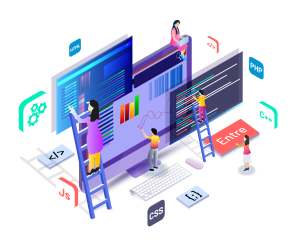
For example, a tool like that can give you 1-click access to sites and organize sites in groups. A website management tool can also scan for security issues and perform a site health check.
You can even keep notes for the different sites your team manages to ensure that everything will be kept organized and coordinated. Export and import of sites is another great perk you can take advantage of.
3. 1-Click Updates
The more websites a WordPress development agency takes on board, the more updates it has to perform. After all, updates are an integral part of the proper management and maintenance of a site (here, we’re talking about updating everything from the WordPress core to plugins, themes, translations, and so on). The problem? Updates take time, especially if you have to perform them manually one at a time.

This is where a reliable website management tool can come in handy. These tools often come with a “1-Click Updates” feature, which can help agencies manage many clients at once. Of course, this can have a positive impact on productivity and profitability.
4. Centralized & Easy User Management
The web development industry is very dynamic and fast-paced. This means that agencies often have to deal with internal changes regarding their teams. One person leaves, another step in – it’s just how it is. These dynamics call for centralized and easy management of user roles to ensure that client websites will continue to be managed with the same level of expertise.
Website management tools can be great as they bring everything to a single, centralized platform. With these tools, you can easily create new users, edit existing ones, change user roles, update admin passwords, manage users in bulk or individually, and many more.
All of this ensures that the internal changes an agency unavoidably faces won’t affect the quality of its work. And at the end of the day, the clients will be happy with the results, which is always the number 1 priority of agencies.
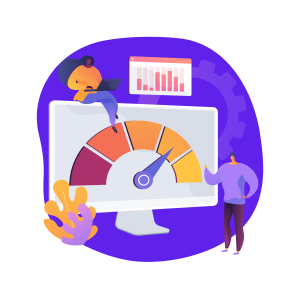
5. Uptime & Performance Monitoring
Another great benefit of website management tools is that they help with performance monitoring and optimization of all client websites simultaneously.
Agencies can get regular reports about performance issues of their clients daily directly in their inbox or on the website management tool’s dashboard.
This helps them see anomalies and fix them as and when needed.

6. Security & Backups Integration
Security is a significant issue for any website that operates on the internet. For agencies, managing the security of their clients is their priority because of the rampant cyber and ransomware attacks. But with the help of website management tools, they can save money and improve security further.
Site management tools allow ad hoc reporting and faster security actions and automate almost everything that can be automated.
7. Client Reporting
The top job of any WordPress development agency is to report to clients about their routine work. They do that through excel spreadsheets, PowerPoint slides, and even documents. Most of the time, these reports take almost the entire day to complete so that clients know in essence about what work was done on their projects.
But website management tools have a built-in task scheduler. These tools note everything done using them and create a report at the end of the task completion. This ensures that clients remain well-equipped with their tasks as and when they are done.
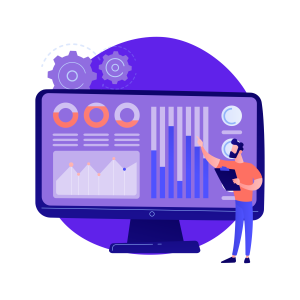
8. Staging Environments
When working on a client’s site, agencies must test everything before it goes into production. They do it with the help of staging websites or environments. Managing these staging sites is a task of its own, and it is cumbersome.
Most modern website management tools allow agencies to manage staging environments as well. They also automate the process of moving code + content from staging to live by clicking a button.
9. White Label Work
The best part about these website management tools is that they are completely white-label. Agencies working with their clients can use these tools without the clients knowing they are using a third-party tool.

10. Distribute Workload
Lastly, website management tools ensure that the workload is manageable. They do it with the help of segmentations. Usually, these site management tools make one domain the parent and all other websites as its child.
This main domain is usually the controller of all other websites. Any installation or activity on the main site directly adds to the child site.
These tools are a gold mine for agencies, and they help them easily manage the workload and minimize maintenance hassles.
Looking for a Website Management Tool?
Having a website management tool under your belt will be the most significant investment you can make to your agency’s resources.
These tools, like MainWP, help you cut costs and ensure that you, as the agency owner, can focus on what matters the most, i.e., less time on maintenance and more time on client acquisition and retention.
Remember, quality trumps quantity. And in the agency model, this is the motto to conduct business with. Having site management tools ensure that you can follow this motto with ease.
More on The Topic
- Leveraging WordPress REST API: Transforming Data Handling
- Navigating WooCommerce Performance: Real-World Strategies
- The Role of AI in WordPress Development Workflows
- Optimizing WordPress for Enterprise: Beyond Basic Caching
- WordPress and Headless Commerce: A Provocative Dilemma
Tags: backupperformancesecuritystaginguptime monitoringwebsite managementwebsite updatewordpress update
The content of this website is copyrighted and protected by Creative Commons 4.0.


